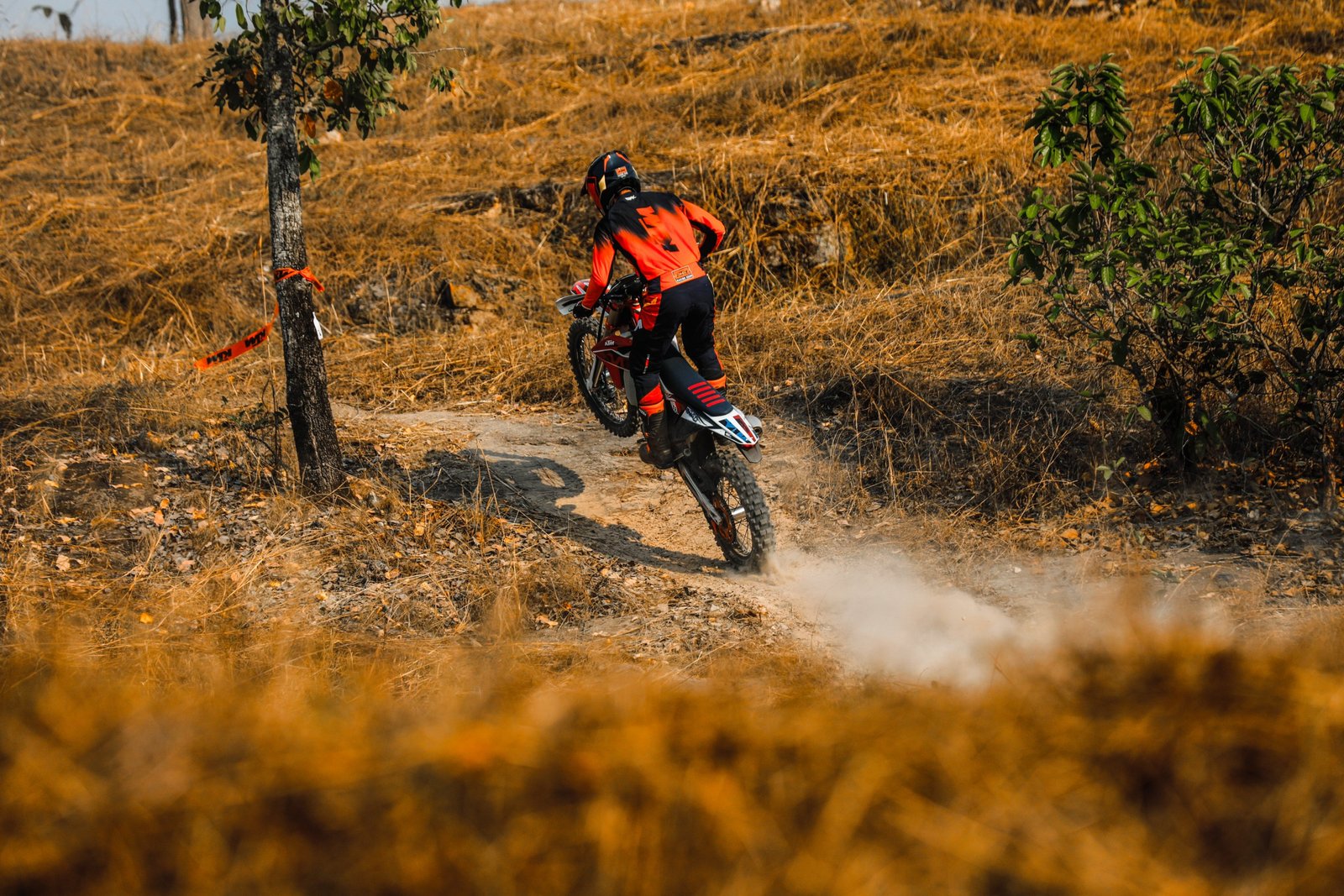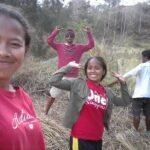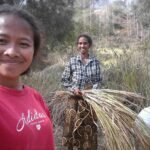
Grandma Says Don’t Cry
For three days, the child hid in the jungle.
On the second day, my friends consulted the local witchdoctor. The ‘horoscope’ is how they translated this person’s role; a seer. The news wasn’t good. Your phone is lying in the jungle, it’s already broken. The child is scared, and has thrown it away.
I said that was okay; I only wanted my SD card, my photos. Surely the child could be made to bring it back.
Some days, I sat on the doorstep of the hostel when I thought no-one was looking, and had a little cry. I felt vulnerable and cut off from support: no maps, no contacts, no kind words from a friend or a lover to remind me that it would matter to someone, somewhere, if I disappeared off the face of the earth.
But the old lady in the house across the square saw me. My friends passed on her message to me later: ‘Grandma says don’t cry.’
In the meantime, the volunteers at the teaching hostel took me into their lives. They were building a shade shelter out of bamboo and grass thatch, and we walked kilometres through the hills to gather the threshed grass. The girls bound enormous bundles and balanced them expertly on their heads, walking home again with an efficient, load-bearing elegance.
The next day, they walked kilometres again to buy firewood, carrying it back in the same way. They wouldn’t let me help with this; it was hard physical work and I was their guest. A few days later, in the afternoon, we walked again through the hills to buy vegetables for the hostel from the parents of one of the schoolchildren. We bought armfuls of purple eggplant and kangkung. With their personal money, the girls bought a few ripe mangoes and we shared them, peeling the skins thinly with a sharp knife.
The hostel had no bathroom, no water. The first night I was confused about where we were supposed to wash; the girls were pointing across the square, into the darkness beyond. Over there? What was I even looking for?
The girls walked me out into the darkness, down the road, down off the road. There, in a small gully, was a flowing stream. The tiny concrete building contained two bath cubicles, each pitch black, each with a concrete trough filled with cold, fresh water straight from the stream. This is where we – and everyone else in the valley – came to wash, morning and night.
It was also where all our drinking water, all our washing and cooking water, was carried from. Several times a day, the girls came out with two or three plastic 5L containers each. They filled the containers from the running pipes and carried them back up the valley, lining them up on a shelf outside, beside the kitchen lean-to.
No fancy filtered drinking water here. We drank the cool water from the mostly clean stream, and were grateful for it.
Each day we ate rice with vegetables, the eggplant and kangkung fried quickly in oil with a little salt. I love eggplant and kangkung, and the leaness of the diet itself imbued the simple food with a certain quality of richness. A little dose of sustained hunger, and a bit of oily saltiness will have your synapses lighting up like firecrackers.
One day, my friend Isa saw me hungrily watching her slicing the eggplants for dinner. ‘It’s the same thing as yesterday, and the day before!’ she said, laughing. ‘It’s not going to change!’
I didn’t mind a bit. Food in your belly, a roof over your head, and the safety of many friends looking out for you; I felt lucky.
The only thing that I struggled to get excited about was the breakfast porridge. I don’t mind a bit of congee – savoury rice porridge with meat and vegetables – but the problem was that we didn’t exactly have any spare meat or vegetables. So breakfast was really just rice in hot salty water with a couple of shallots on top. I ate it anyway.
* * *
On Saturday, the girls brewed sweet, rich Timorese coffee in the morning and we bought fresh doughnuts from one of the small children who passed by in the road, swinging a big plastic bucket filled with the freshly fried bread. There was a vaguely celebratory air; we had good friends, food, the sun was shining. The structure of the new shade shelter was going up.

We had heard that there was trouble in Dili, one person had been killed. Elections had taken place some months earlier but there was still no government: the institutionalised conflict between Gusmao and Alkatiri had paralysed the Timorese democracy again. There had been rock throwing in the streets, and targeted attacks on supporters of opposing parties.
Ricky assured that I was not a target, that there was no particular danger to me if and when I got back to Dili. He said that in Timor Leste, people knew which party their neighbours supported; this is how, in times of unrest, a mob might come to your house and attack you. That’s what had happened in Dili the previous day.
Or – and he said this with a laugh and a philosophical shrug – in Timor Leste you might going about your normal business and someone might get angry about something and just suddenly kill you. Decades of violence and trauma had left a deep and unpredictabe mark on many of the people who had lived through it. Ricky shrugged it off, though. Here in Morobo, and the SOLS hostel, the community was close. The people loved one another, loved God, and worked to make a good life.
Later, the girls and I walked up the hill and bought biscuits. The local people all knew the girls by the names of the places they came from – my friend Betty was Ermera, my friend Isa was Occusse – and they had all heard the story of my stolen phone. They called out from their porches, shook their heads, said they hoped I got it back.

* * *
After three days, it rained.
The low-lying square flooded, and the half-finished thatch shelter collapsed under the weight of the water. The hillside liquefied under Beastie’s sidestand and she subsided softly into the mud, before the boys helped me push her onto the concrete volleyball court. With the hammering of water on the tin roof, we couldn’t hear each other speak.
It seemed cold then, up there in the mountains. The volunteers wrapped themselves in blankets and hoodies. When I experienced a rush of anxiety – an old companion that visits often – I ran through my calming exercise: five things that I can see, four things that I can feel, three things that I can hear… and I stopped there, because I could literally hear only one thing: the thundering rain.
With the rain, the child came home. He emerged from the jungle without my phone. He could not be prevailed upon to disclose its final resting place and my hopes of recovering my SD card of photos, at least, were dashed.
I had waited for the drama to run its course and now there was certainly nothing more to be done. I had indulged in tears and anxiety over the impact of the financial loss on my budget, on my ability to communicate with the world, to seek help, to access maps and to actually find my way out of these bloody mountains. Now it was time to pull my socks up and get over it.
But still it rained.
At night, we squatted around the cooking fire in the corrugated iron lean-to at the back of the hostel, welcoming the warmth from the coals. The roads were impassable; a muddy morass from Morobo to Bobonaro. I wasn’t going anywhere.
Idly, I wondered if I would make it to the Indonesian border by the time my visa ran out. Normally, I would worry about something like that. But since I couldn’t do anything about it, there wasn’t much point.
* All photographs shamelessly borrowed from my beautiful friends. Sena, Isa, Betty, Ricky, everyone – thank you for everything, a thousand times over.



I very much hope, Grace, that your next post will tell us how you finally got your phone back.